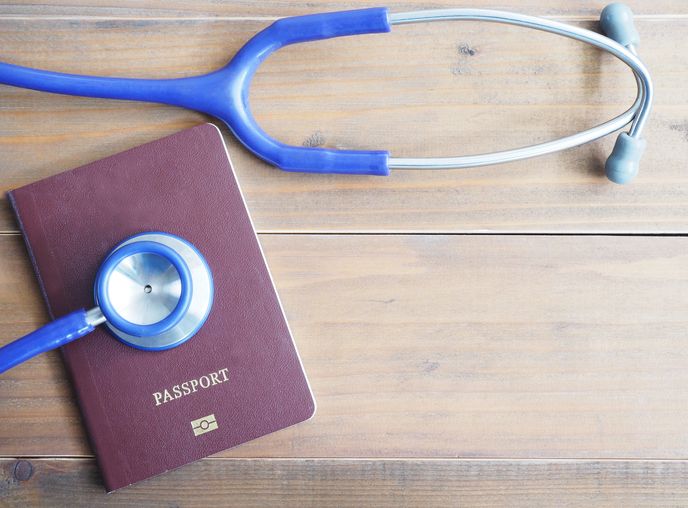Most of us live our lives without giving too much thought as to what might happen if we were to be the victim of a serious accident or develop a life threatening condition. The more fore-sighted of us have life insurance and some of us have agreed with loved ones what should be done in the event that we become incapacitated.
However, many people live their lives without such contingency plans in place. If someone is injured and becomes permanently disabled as a result, not only will they and their families have to face difficult medical decisions and a complete change of future plans, but these issues become ever more stressful when a limited or precarious immigration status is thrown into the mix.
For people with limited or no immigration status in the UK and who are the victims of such accidents, there can be very serious implications for themselves and their family’s immigration status. The immigration team at Bindmans are regularly instructed by personal injury solicitors to advise on the positions of individuals in these tragic circumstances.
EU Nationals
EU nationals who have been seriously injured and are therefore no longer able to work may have concerns about how this will impact themselves and their family’s immigration status. A European national normally acquires permanent residence once he or she has remained in the UK in accordance with the EU Regulations for a continuous period of five years; in other words, they must have resided throughout this period as a “qualified person” (e.g. working or studying or as a self-sufficient person).
However, in some circumstances the EEA Regulations also allow for qualified persons who has ‘ceased activity’ to acquire permanent residence. The individual will have to have been a qualified person for 1, 2 or 3 years (depending on whether they were working, studying, self-employed etc.) before they can meet the definition of someone who has ceased activity, but this may enable an EU national to protect his or her position in a situation where they are no longer able to work. Providing such a person can meet the definition, the EEA Regulations state that a worker who has ceased activity will acquire the right of permanent residence in the UK. This means that by acquiring permanent residence there is no time limit on their stay and they and their family members can remain in the UK and continue to access any medical treatment required.
Non-EU Nationals
For non-EU nationals who are incapacitated while living and working in the UK the position may be more complex. For example, individuals who are working in the UK under the Tier 2 scheme have some provision for long term sick leave, but if they become permanently unable to work then they are likely to have their visa curtailed and be expected to return to their country. For individuals and their families who have been in the UK for a number of years and who were intending to apply for settlement this is obviously a significant issue.
On top of this is the politically controversial issue of severely disabled individuals in these circumstances having access to medical care in the UK. While some may be critical of individuals who are not British or settled in the UK having access to complex and long term NHS treatment, it is worth considering that these individuals may have been paying tax and National Insurance in the UK for many years. Depending on the individual circumstances there may be options to apply for leave to remain in the UK on human rights grounds, for those with leave to remain or even those with no status.
Medical Treatment in the UK: Your Human Rights
Medical treatment for individuals in the UK is a human rights issue, which was recently looked at in the case of: AM (Zimbabwe) and another v Secretary of State for the Home Department [2018] EWCA CIV 64 (30 January 2018). This case sets out the context in which an individual may rely on Article 3 (the prohibition on torture or inhuman or degrading treatment or punishment) and Article 8 (the right to respect for private and family life) of the European Convention on Human Rights in a medical case.
Following on from the European Court of Human Rights Judgment in Paposhvili v Belgium, the current position means that it maybe arguable that an individual should be granted leave to remain in the UK, where:
- the situation involves the removal of seriously ill person from the UK; and
- there are substantial grounds to show that although the individual may not be at imminent risk of dying, they would face a real risk (on account of the absence of appropriate treatment in the receiving country or the lack of access to such treatment), of being exposed to a serious, rapid and irreversible decline in his or her state of health resulting in intense suffering or significant reduction in life expectancy.
Immigration law is complex and constantly changing. When combined with the stresses of a personal injury case, it may seem overwhelming and impossible to cope. However, Home Office decisions on these cases can be successfully challenged and there are often options to enable a person in such circumstances to remain living with their family members in a country that they consider to be their home.
How Bindmans can help
In these situations we strongly advise seeking expert specialist legal advice. At Bindmans LLP we are regularly instructed in such cases and work seamlessly with expert Personal Injury lawyers to ensure that vulnerable individuals and their families receive all-round intensive legal advice to protect their positions and receive the best possible outcome on their cases.
